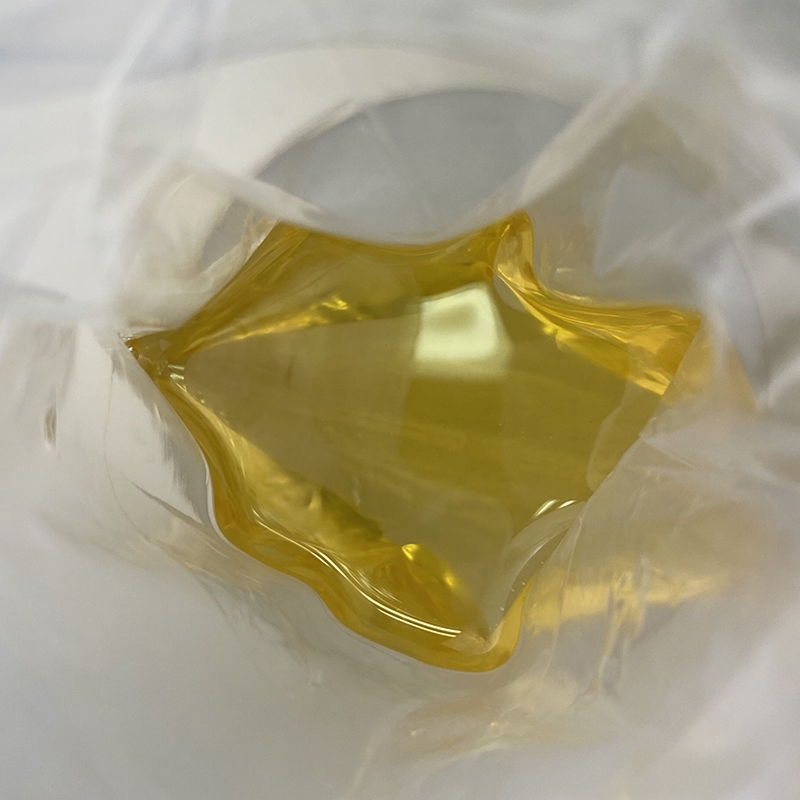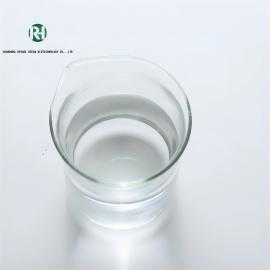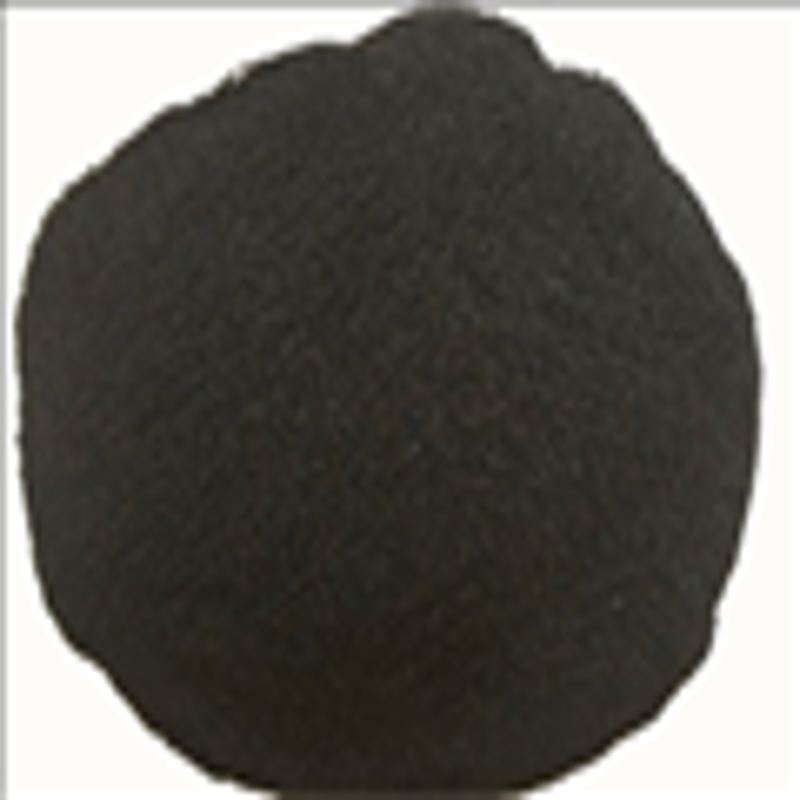-
Categories
-
Pharmaceutical Intermediates
-
Active Pharmaceutical Ingredients
-
Food Additives
- Industrial Coatings
- Agrochemicals
- Dyes and Pigments
- Surfactant
- Flavors and Fragrances
- Chemical Reagents
- Catalyst and Auxiliary
- Natural Products
- Inorganic Chemistry
-
Organic Chemistry
-
Biochemical Engineering
- Analytical Chemistry
- Cosmetic Ingredient
-
Pharmaceutical Intermediates
Promotion
ECHEMI Mall
Wholesale
Weekly Price
Exhibition
News
-
Trade Service
In summer, many people can't help but want to drink milk tea, and there are many friends who like milk tea around me
.
Milk tea tastes sweet and it is easy to make people feel happy
.
As the temperature gets higher and higher, the icy "top" milk tea has become a "good heart" for many people
.
However, milk tea seems to have "rolled over" recently
.
.
As the temperature gets higher and higher, the icy "top" milk tea has become a "good heart" for many people
.
However, milk tea seems to have "rolled over" recently
.
Some well-known milk teas were reported to be contaminated by microorganisms, and the total number of bacterial colonies exceeded the standard by 11 times.
.
.
and coliforms were also detected.
.
.
.
.
and coliforms were also detected.
.
.
The total number of colonies exceeded the standard by 11 times | News report comes from Jiangsu Radio and Television General Station
In this special period when the world is being affected by the new crown virus, everyone's hearts are also tense (wu) (liao) (yao) tight (ming), so they put down the milk tea in their hands and began to think: Is the total number of colonies harmful? What? Can I still drink milk tea with confidence? Today I will talk to you about microorganisms
.
.
1.
What are the total number of colonies and coliforms?
What are the total number of colonies and coliforms?
Seeing bacterial colonies and coliform bacteria, many people will think of feces and other dirty mess, and they can't help the spread of their inner worries
.
In fact, everyone completely misunderstood
.
.
In fact, everyone completely misunderstood
.
The total number of colonies refers to the number of all colonies grown on a specific medium at a specific temperature
.
Coliform bacteria refers to a group of gram-negative non-bacillus bacteria that can ferment lactic acid, produce acid and gas, aerobic and facultative anaerobic, cultivated at 37°C for 24 hours.
It does not represent one or a certain genus of bacteria, but refers to It is a group of bacteria related to fecal contamination with certain characteristics
.
.
Coliform bacteria refers to a group of gram-negative non-bacillus bacteria that can ferment lactic acid, produce acid and gas, aerobic and facultative anaerobic, cultivated at 37°C for 24 hours.
It does not represent one or a certain genus of bacteria, but refers to It is a group of bacteria related to fecal contamination with certain characteristics
.
Our human body and surrounding environment are actually full of bacteria
.
| Picture from freepik.
com
.
| Picture from freepik.
com
In fact, "the total number of colonies exceeds the standard" and "detection of coliform bacteria" do not necessarily cause harm to the human body
.
.
First of all, the total number of colonies and the coliform are both microbial indicator bacteria, which are usually used by enterprises to regulate the production process in the world, and they are rarely used to determine the eligibility of catering food
.
.
The total number of colonies and coliforms are mainly used to evaluate the cleanliness of food and reflect whether the food meets the specifications in the process of production, processing, transportation and storage
.
If “exceeding the standard” appears, it means that there may be irregularities in the production, processing, transportation and storage of the food, and the food hygiene needs to be improved
.
.
If “exceeding the standard” appears, it means that there may be irregularities in the production, processing, transportation and storage of the food, and the food hygiene needs to be improved
.
Secondly, there are bacteria everywhere in our human body and the surrounding environment
.
.
You know, our human intestines retain tens of billions of bacteria all year round, weighing nearly 1 kilogram, most of these bacteria do not make people sick, and we have always been fine
.
Moreover, the environment in which we live and the air we breathe are also full of bacteria, which does not affect our health
.
Bacteria and microorganisms are also divided into good and bad.
Some have no effect on us, and some are even beneficial to us.
Typical examples are "probiotics".
They are bacteria that are beneficial to the human body
.
.
Moreover, the environment in which we live and the air we breathe are also full of bacteria, which does not affect our health
.
Bacteria and microorganisms are also divided into good and bad.
Some have no effect on us, and some are even beneficial to us.
Typical examples are "probiotics".
They are bacteria that are beneficial to the human body
.
Further reading: The more viable bacteria, the better the probiotic effect? Can probiotics cure all diseases? 10 truths you should know about probiotics
The most important thing is whether there is harm, the key is to see whether there are pathogenic bacteria
.
.
Whether it will cause harm to the human body, the key depends on whether there are some "terrorists" in these bacteria.
The common ones are Salmonella, Staphylococcus aureus, Listeria, etc.
, which are often referred to as "pathogenic bacteria
.
" As long as there are no such "terrorists", there will be no harm to the human body
.
The common ones are Salmonella, Staphylococcus aureus, Listeria, etc.
, which are often referred to as "pathogenic bacteria
.
" As long as there are no such "terrorists", there will be no harm to the human body
.
Therefore, everyone does not need to see "bacteria" and "microbes" to feel very dangerous
.
.
2.
Can milk tea with "exceeding standards" of microorganisms still be drunk?
Can milk tea with "exceeding standards" of microorganisms still be drunk?
According to the Internet, the total number of edible ice colonies of this milk tea exceeded the standard by 11 times
.
Seeing 11 times, everyone expressed their horror and thought it exceeded the standard too much
.
.
Seeing 11 times, everyone expressed their horror and thought it exceeded the standard too much
.
So, does the total number of fungi in milk tea really exceed the standard? Can you still drink? In fact, it is unreasonable to say that the total number of colonies of milk tea "exceeds the standard"
.
.
The random inspections mentioned in this news report were all carried out in the "milk tea shops" that were manufactured and sold on site, and they were sampling inspections of "catering" enterprises that were made and sold on the spot
.
When judging "exceeding standards", it refers to the standard of "prepackaged food"
.
.
When judging "exceeding standards", it refers to the standard of "prepackaged food"
.
The so-called pre-packaged food refers to the well-packaged food produced and processed by the manufacturer
.
Take milk tea as an example.
The kind that you buy home to make is a pre-packaged milk tea, such as the one endorsed by Jay Chou before
.
.
Take milk tea as an example.
The kind that you buy home to make is a pre-packaged milk tea, such as the one endorsed by Jay Chou before
.
This is the pre-packaged milk tea
.
| Picture from the Internet
.
| Picture from the Internet
Comparing these two products, it is easy to see that they are completely different from the production environment to the consumption link.
Therefore, the standard of pre-packaged food cannot be used as the basis for evaluating the "exceeding standard" of the instant milk tea colony in the milk tea shop
.
Therefore, the standard of pre-packaged food cannot be used as the basis for evaluating the "exceeding standard" of the instant milk tea colony in the milk tea shop
.
In fact, as early as 2013, China's food safety standards management department replied that the "Hygiene Standard for Frozen Drinks" does not apply to frozen products made by the catering industry
.
In 2015, the latest revision of this standard also made it clear that it does not apply to "made-in-the-sale" beverages
.
.
In 2015, the latest revision of this standard also made it clear that it does not apply to "made-in-the-sale" beverages
.
"Hygienic Standard for Frozen Drinks" does not apply to frozen products such as ice cubes in the catering industry | National Food Quality Supervision and Inspection Center
Therefore, if the milk tea colony exceeds the standard, it is entirely due to the improper reference standard and the oolong is not really exceeding the standard
.
.
At present, there is no mandatory limit on the total number of colonies in the food of restaurants in the world, but safety is guaranteed through operating specifications
.
For example, China has also formulated the "Code of Practice for Food Safety in Catering Services", which has strict requirements for hygienic operation and microbial control, but does not impose limit requirements on microbes
.
.
For example, China has also formulated the "Code of Practice for Food Safety in Catering Services", which has strict requirements for hygienic operation and microbial control, but does not impose limit requirements on microbes
.
"Code of Practice for Food Safety in Catering Services" | General Administration of Market Supervision
At present, some local standards in China are discussing the limit management of catering food microorganisms.
For example, the local standard DBS44/006-2016 in Guangdong has established limit standards for microorganisms in non-prepackaged ready-to-eat foods.
The total number of colonies and coliforms are classified , Hierarchical management, the maximum total number of colonies is 10 million cfu/g (mL), while E.
coli is not more than 100 cfu/g (mL)
.
Compared with the results of the total number of bacteria on ice for milk tea in the news (1200cfu/g(mL)), it can be seen that the gap is quite large
.
For example, the local standard DBS44/006-2016 in Guangdong has established limit standards for microorganisms in non-prepackaged ready-to-eat foods.
The total number of colonies and coliforms are classified , Hierarchical management, the maximum total number of colonies is 10 million cfu/g (mL), while E.
coli is not more than 100 cfu/g (mL)
.
Compared with the results of the total number of bacteria on ice for milk tea in the news (1200cfu/g(mL)), it can be seen that the gap is quite large
.
Guangdong local standards for non-prepackaged ready-to-eat food microorganism limit indicators
Our living environment itself is not sterile, and restaurants are not sterile workshops
.
Bacteria in cold drinks are unavoidable
.
As long as there are no pathogenic bacteria, there is no need to worry, and you can drink milk tea with confidence
.
(Hot drinks can scald the bacteria, but do you like to drink hot all the time?)
.
Bacteria in cold drinks are unavoidable
.
As long as there are no pathogenic bacteria, there is no need to worry, and you can drink milk tea with confidence
.
(Hot drinks can scald the bacteria, but do you like to drink hot all the time?)
1.
How to drink milk tea more safely and healthily?
How to drink milk tea more safely and healthily?
(1) When buying milk tea at ordinary times, try to go to a regular restaurant and choose a sanitary and clean business
.
.
The total number of colonies always reflects the sanitary condition of the restaurant, which is what we should pay attention to
.
It is recommended that you usually go to a formal restaurant as much as possible when buying milk tea, for example, to see if the restaurant has a hygiene certificate
.
.
It is recommended that you usually go to a formal restaurant as much as possible when buying milk tea, for example, to see if the restaurant has a hygiene certificate
.
Go to a restaurant with good sanitary conditions to drink milk tea | Image from freepik.
com
com
Nowadays, many restaurants are "showing kitchens and bright stoves".
You can see the inside through the glass.
If you are not at ease, stay for a while to see if the environment inside is sanitary and whether the staff has unsanitary operations, such as Did you wear a mask, did you pick up your nose without washing your hands.
.
.
You can see the inside through the glass.
If you are not at ease, stay for a while to see if the environment inside is sanitary and whether the staff has unsanitary operations, such as Did you wear a mask, did you pick up your nose without washing your hands.
.
.
Of course, all catering companies should also be reminded to strictly follow the requirements of the "Food Safety Operation Regulations for Catering Services" when handling food daily to ensure food safety
.
.
(2) Although milk tea is good, don't be greedy for a cup
.
.
A cup of 500 ml milk tea contains about 50 grams of sugar, and many more will add cream
.
The milk tea you drink will turn into fat on your body
.
Therefore, drink milk tea in moderation, not too much
.
.
The milk tea you drink will turn into fat on your body
.
Therefore, drink milk tea in moderation, not too much
.







